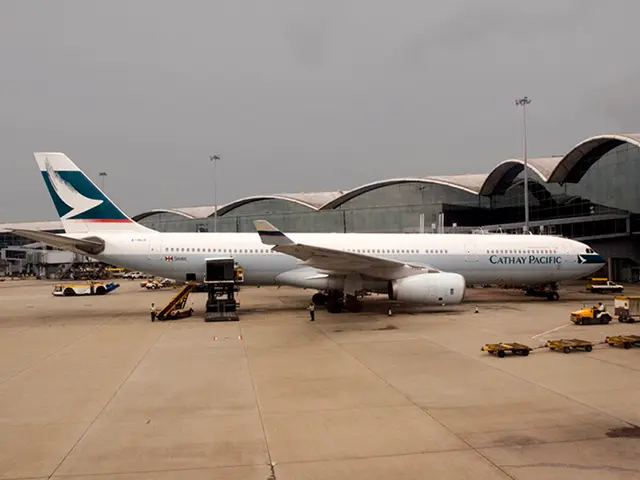U.S.-U.K. Trade Declaration: "This isn't a major agreement, it's just a palate teaser"
Grasping the Granularity of the US-UK Trade Pact
Following the unveiling of the US-UK trade agreement, experts are scrambling to comprehend its nitty-gritty implications, while opinions gradually surface. The general sentiment revolves around the potential for the UK government to deliver favorable terms, but with minimal clarity on the deal's ramifications for numerous industries.
In essence, the last few weeks have essentially constituted 'talks about talks,' according to trade analysts, as the actual negotiations have yet to commence. This is acceptable, they say, considering it's typical in 'Trump world.'
Despite cautious optimism on the British side, Trump's posts on Truth Social portray the deal as a decisive victory for the US, seemingly at the UK's expense.
A Agreement Shrouded in Mystery
The lack of specifics surrounding the deal is atypical compared to standard trade announcements, as demonstrated by the UK-India trade agreement. Even within the government, the details of this agreement remain opaque.
Gregor Poynton, Labour MP and member of the Business and Trade Committee, expressed optimism: "This appears to be a deal that favors the UK, granting access to the world's largest economy for our exceptional British products and innovations."
Others, however, display less enthusiasm.
Professor Simon Evenett, co-chair of the World Economic Forum's Council on Trade and Investment and former World Bank Economist, labels the deal an 'amuse-bouche.' Evenett criticizes the deal as 'thin' and argues that it fails to meet expectations.
For Evenett, the deal was announced prematurely because "Trump needed a quick victory to placate the financial markets." This strategy seems to have paid off, at least in Europe.
The Automotive Industry: A Potential Winner
The automotive sector is often heralded as one of the key beneficiaries. However, the specific companies that stand to gain remain to be seen.
The agreement specifies that the first 100,000 UK cars imported into the US will incur a 10% tariff, followed by a 25% tariff on every car sold afterward.
The government may allocate (or auction off) the first 100,000 slots to specific companies, adopt a 'first come, first served' system, or opt for a 'free for all,' enabling UK automakers to import cars into the US with the more favorable tariff rate until the cap is reached.
The Scale of the Deal
While Trump described the deal as a 'maxed-out agreement,' numerous industries still question their positions.
Karen Betts, Chief Executive of the Food and Drink Federation, voiced concern: "There remains the question of the 10% tariff that persists for food and drink exports."
Betts reminds us that the US is the UK's third-largest food and drink export market, worth £2.7bn last year. As many of these exports are from smaller or medium-sized companies, "the government can make a significant difference by providing more practical guidance," Betts said.
Technology Talks
Tech has always been a significant component of trade discussions with the US. Trump pushed for the UK's 2% digital services tax (DST), affecting US tech giants like Meta and Apple, deeming it unfair and discriminatory.
According to POLITICO, the UK government plans to seek broad-reaching terms on tech, including AI, but anticipates the US will continue to push for the DST to be lowered.
A senior Labour MP told City AM that the 2% was merely 'chicken feed' for US tech giants, but maintaining the principle is crucial to them.
The Exchequer had projected to raise £800m from this tax this year, a loss that won't constitute a 'black hole' in the budget, the Labour MP claims, but which has been earmarked for public funding.
Evenett stated that the UK government has 'kicked the ball into the long grass.' They've stated that they will negotiate on matters related to digital trade, but they didn't specify whether the digital services tax would be included in negotiations. However, they haven't definitively ruled it out either.
Julian David, CEO of techUK, remains hopeful. He envisions leveraging the momentum from this deal to facilitate 'trusted data flows, regulatory alignment, and resilient, innovation-led growth,' and 'incorporating emerging technologies - from AI to quantum - into this framework.'
The Anti-China Alliance
A trade expert informed City AM that 'the announcement implies that the US and UK will strengthen UK-US cooperation on economic security matters, which likely means tightening regulations to ensure UK technology is not exported to China.'
Evenett concurred, saying: "A significant part of the deal has been framed in terms of increasing the economic security of both the US and the UK. This, as seen from the US perspective, implies essentially barring China from both countries wherever possible."
"The UK Government is being invited to align with the United States in their opposition to China on economic security issues," Evenett added. "London will need to determine how far they are willing to take this."
- The lack of detailed information on the US-UK trade agreement is atypical compared to past agreements, such as the UK-India deal, and even within the UK government, the specifics remain elusive.
- While Gregor Poynton, a Labour MP, believes the US-UK trade agreement could favor the UK by offering access to the world's largest economy for British products and innovations, Professor Simon Evenett criticizes it as an 'amuse-bouche' due to its thinness and failure to meet expectations.
- In the realm of technology, the US has been pushing for the UK to lower its 2% digital services tax, affecting US tech giants like Meta and Apple, and the UK government is expected to seek broad-reaching terms on tech, including AI, in negotiations while anticipating continued US pressure on the DST.








